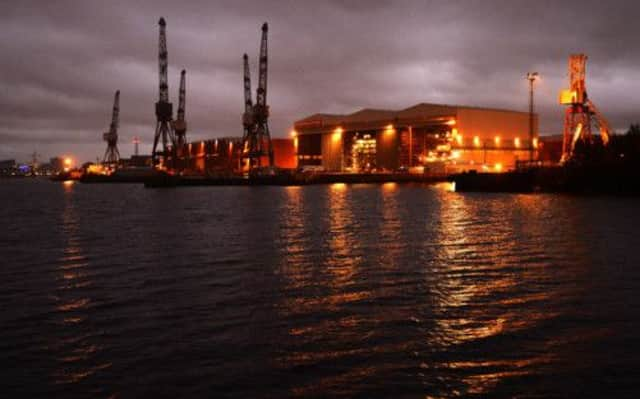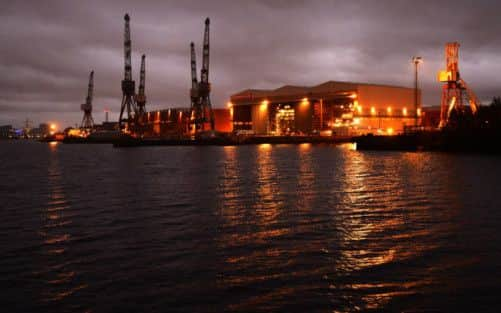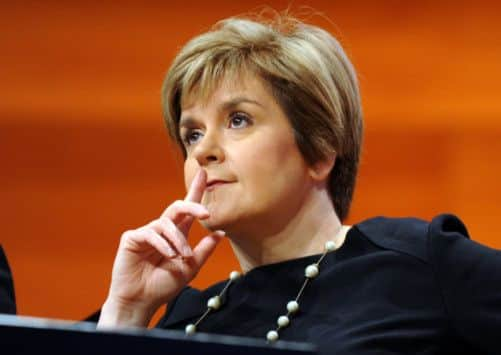Independent Scotland can build ships - Sturgeon


The Deputy First Minister rounded on the UK government minister when he suggested that warship contracts currently earmarked for the Clyde could go to Portsmouth if Scotland voted for independence.
Ms Sturgeon was reacting to a remark Mr Carmichael made to a Portsmouth newspaper in which he said that the south-coast naval base would be “well placed” to take on the Type 26 frigate contracts in the event of a Yes vote next year.
Advertisement
Hide AdAdvertisement
Hide AdMr Carmichael was reaffirming his view that British warships could not be built in an independent Scotland, because the UK government would not countenance them being built outside what remained of the UK.


Speaking to the Portsmouth-based The News, Mr Carmichael said: “If Scotland were to vote Yes, then the rest of the UK would be looking for shipyards within their jurisdiction and, yes, you would think Portsmouth would be well placed in that circumstance.”
Speaking at First Minister’s Questions, which was dominated by shipbuilding, Ms Sturgeon said: “I thought his behaviour yesterday was shameful. He is the Secretary of State for Scotland. His job is to stand up for Scottish interests [but] he is quoted in the Portsmouth press this morning talking about taking jobs away from Scotland. That’s disgraceful.”
At Holyrood, Ms Sturgeon was standing in for First Minister Alex Salmond, who is promoting Scotland on a visit to China and Hong Kong.
Ms Sturgeon disputed the UK government’s position, arguing that a Yes vote would not mean the end of UK defence contracts for complex warships being built on the Clyde.


In an exchange with Johann Lamont, Ms Sturgeon accused the Scottish Labour leader of attempting to “bully and blackmail” shipyard workers by suggesting that independence could see the loss of contracts.
Ms Sturgeon insisted the work on the Type 26 frigates could be done on the Clyde, even if Scotland leaves the UK.
Ms Lamont asked the Deputy First Minister: “Can she explain to my constituents and hers who work on the Clyde what will happen to their jobs should there be a Yes vote?”
Advertisement
Hide AdAdvertisement
Hide AdMs Sturgeon said: “This is a question about what happens after Scotland has democratically voted for independence, and surely she is not going to threaten and bully and seek to blackmail Scottish shipyards?”
Ms Lamont responded: “Once that vote is taken, we have no influence over what a UK government would do because we are not in it.”
However, Ms Sturgeon retorted by producing a Royal Navy press release in which Defence Secretary Philip Hammond suggested that the UK could collaborate with Australia on the Type 26.
Later, her opponents pointed out that the proposed collaboration was on design of ships rather than in building.
This week’s job loss announcement by defence contractor BAE Systems will see more than 800 jobs go at the Govan and Scotstoun yards. The Clyde yards will be kept open with workers given the contract to build three Royal Navy offshore patrol vessels. There was also the prospect of the Clyde being awarded the work on 13 Type 26 frigates, should Scotland remain in the Union.
Cuts at shipyards on the Clyde could result in wider job losses of around 2,400 across Scotland, economic experts have said.
The University of Strathclyde’s Fraser of Allander Institute said the knock-on effect could cost the Scottish economy £195 million a year.
READ MORE